
Professor Peter Ellis
Professor of Carbohydrate Biochemistry
Research interests
- Nutrition
Biography
Peter Ellis is Head of the Biopolymers Group in the Department of Nutritional Sciences. His main research interests include the structure and properties of plant polysaccharides, especially in relation to the bioaccessibility, digestion and absorption of nutrients in the human gastrointestinal tract. This work has been funded by grants from the BBSRC, MRC, FAO and Industry. Current studies focus on the behaviour of supramolecular plant structures, such as starch and the cell wall matrices (i.e. 'dietary fibre'), in the gut and their impact on digestion and postprandial metabolism. These mechanistic studies are of importance in evaluating the role of starch and dietary fibre on the treatment and prevention of non-communicable disease, such as type 2 diabetes and cardiovascular disease. An improved understanding of the mechanisms of dietary polysaccharides will facilitate the rational design of novel food ingredients and food products with enhanced medical or nutritional benefits (i.e. functional foods).
Research

Diet & Gastrointestinal Health Research Group
The Diet and Gastrointestinal Health Research Group aims to understand the molecular, cellular, whole person and population-level mechanisms involved in gut health and the development and treatment of gastrointestinal disease.

Postprandial metabolism
Postprandial metabolism refers to the metabolic changes that occur after a meal, following the absorption and processing of nutrients
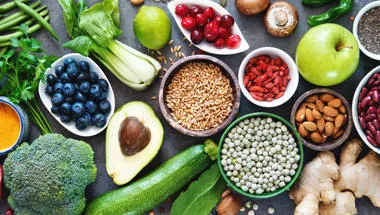
Phytochemicals
Phytochemicals are plant secondary metabolites. Currently, more than 10000 different types of phytochemicals have been identified, and many still remain unknown.

Carbohydrates and biopolymers
Biopolymers refers to natural polymers that are produces produced by cells of living organisms. Of particular interest to our group and nutritional sciences in general are carbohydrate polymers from plant sources such as starch, cell wall matrices (including non-starch polysaccharides or ‘dietary fibre’) and polyphenolics.

Bioaccesibility & bioavailability of nutrients and bioactives
Iron deficiency (ID) and iron-deficiency anemia (IDA) are global problems that affect more than 2 billion people accounting for 0.8 million deaths annually worldwide. Consequently, sustainable food-based approaches are being advocated to increase the intake of foods with high iron content and bioavailability.

Safe and sustainable diets for a healthy body and mind (SSuDs)
This Research Interest Group on Safe and Sustainable Diets for a Healthy Body And Mind provides a unique opportunity for the King’s research community to address the challenges of safe and sustainable diets across a range of health outcomes
News
Converting food waste to protein could help the global hunger crisis
Transforming food waste using sustainable technologies could produce enough protein to tackle the global food crisis.
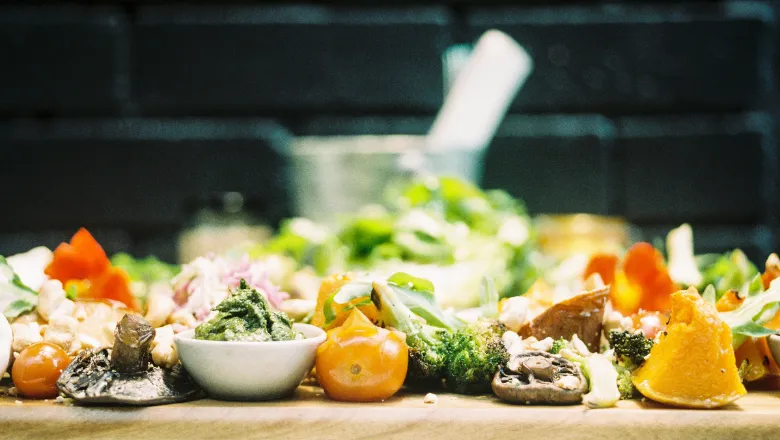
Bread made from cell pulse flour keeps you fuller for longer
Bread made from a new type of whole cell pulse flour can lower blood glucose (sugar) levels and keep you fuller for longer, new research has found.
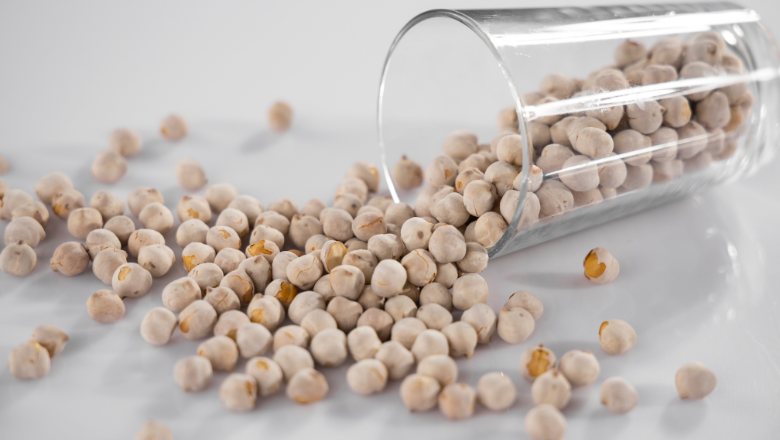
Uncovering how physical structure of dietary fibre underpins its benefits to health
A new study has shown how food processing changes dietary fibre structure and so affects the nutritional value of food.
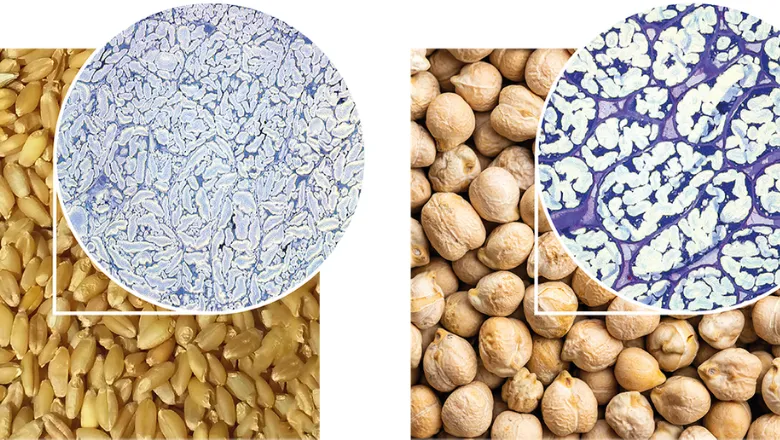
Features
Spotlight on nutrition: Research into the impacts of our diets
From beans, to berries to new types of bread, our researchers have been doing a range of work to help us better understand how you are what you eat.
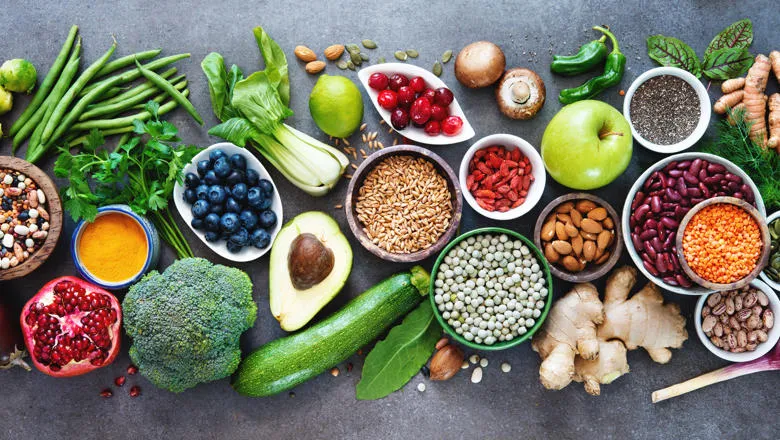
Research

Diet & Gastrointestinal Health Research Group
The Diet and Gastrointestinal Health Research Group aims to understand the molecular, cellular, whole person and population-level mechanisms involved in gut health and the development and treatment of gastrointestinal disease.

Postprandial metabolism
Postprandial metabolism refers to the metabolic changes that occur after a meal, following the absorption and processing of nutrients

Phytochemicals
Phytochemicals are plant secondary metabolites. Currently, more than 10000 different types of phytochemicals have been identified, and many still remain unknown.

Carbohydrates and biopolymers
Biopolymers refers to natural polymers that are produces produced by cells of living organisms. Of particular interest to our group and nutritional sciences in general are carbohydrate polymers from plant sources such as starch, cell wall matrices (including non-starch polysaccharides or ‘dietary fibre’) and polyphenolics.

Bioaccesibility & bioavailability of nutrients and bioactives
Iron deficiency (ID) and iron-deficiency anemia (IDA) are global problems that affect more than 2 billion people accounting for 0.8 million deaths annually worldwide. Consequently, sustainable food-based approaches are being advocated to increase the intake of foods with high iron content and bioavailability.

Safe and sustainable diets for a healthy body and mind (SSuDs)
This Research Interest Group on Safe and Sustainable Diets for a Healthy Body And Mind provides a unique opportunity for the King’s research community to address the challenges of safe and sustainable diets across a range of health outcomes
News
Converting food waste to protein could help the global hunger crisis
Transforming food waste using sustainable technologies could produce enough protein to tackle the global food crisis.

Bread made from cell pulse flour keeps you fuller for longer
Bread made from a new type of whole cell pulse flour can lower blood glucose (sugar) levels and keep you fuller for longer, new research has found.

Uncovering how physical structure of dietary fibre underpins its benefits to health
A new study has shown how food processing changes dietary fibre structure and so affects the nutritional value of food.

Features
Spotlight on nutrition: Research into the impacts of our diets
From beans, to berries to new types of bread, our researchers have been doing a range of work to help us better understand how you are what you eat.

